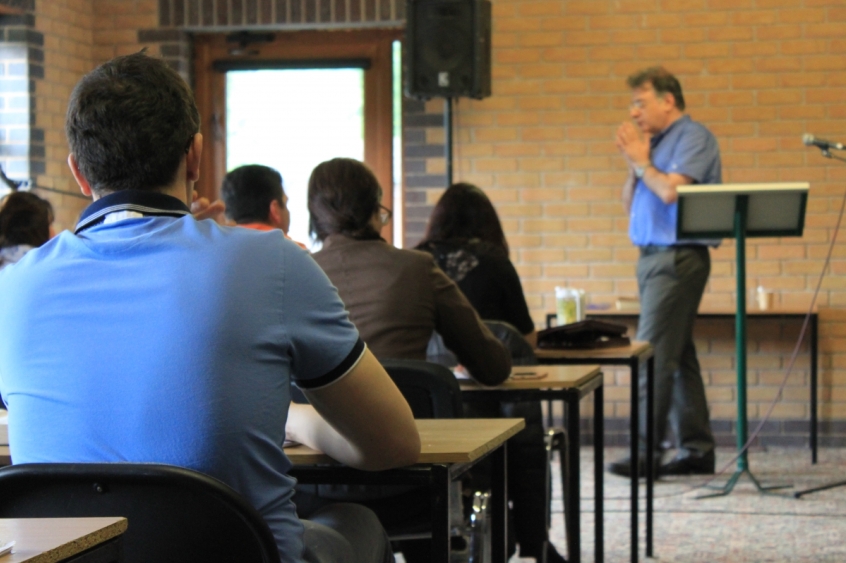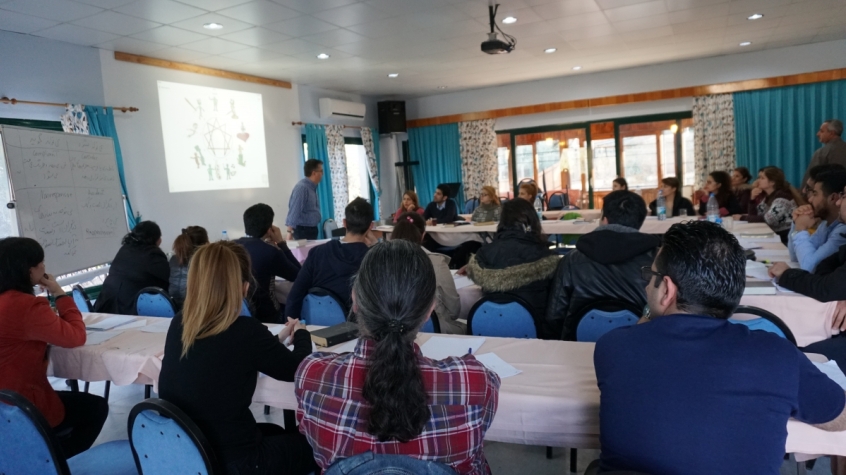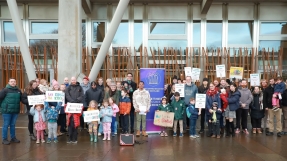
The Church in Iran is vulnerable, faces great opposition, and is also experiencing "unprecedented growth". Stories of hope are emerging amid a time of great challenge. Christian Today spoke with the London based group that's leading the way in equipping Iran's underground church leaders.
A story of hope
The story of Narineh illustrates the kind of "radical change of heart" that is taking place in Iran. The story, which you can read at length here, tells of Feridoon, a man sentenced to death after he killed a man called Afshin. Afshin's family for a time only felt "anger, hatred and pain", and demanded Feridoon's execution. Narineh mediated however, and met often with Feridoon and Afshin's family, sharing the love and grace of Christ with both.
For a while, Narineh's efforts seemed in vain. However:
"Two days prior to the execution, Afshin's family experienced a radical change of heart. Through Narineh's witness and their watching the Jesus film, the Holy Spirit touched their hearts. They decided to visit Feridoon in prison. There, they told Feridoon that they forgave him. Then they went to the prison office and requested that Feridoon be set free and not executed. There were no dry eyes in the room. No one could understand the grace Afshin's family showed toward Feridoon."
The family said: "Thanks be to Christ! He is the one who helped us show mercy and it was Christ who wanted us to find new life."
As the account writes: "New life" truly flowed into Afshin's house that afternoon. At Narineh's invitation, all those present committed themselves to Christ. Hatred melted away, replaced by love, grace and forgiveness. Today, both families lead house churches."
The challenges of growth
This story comes from an underground church network in Iran. Christian Today spoke with "S" from Pars Theological Centre, a seminary that trains the network's leaders.
"We do hear a lot of remarkable, dramatic stories that really take us by surprise." she said.
"S" describes the Church movement in Iran as "experiencing unprecedented growth," with Iran being at the "eye of the storm" of Muslims turning to Christ across the region.
The church is growing at a rapid rate, but with this comes serious concerns about the depth of growth and discipleship particularly among new converts. There are also sparse resources and leaders to equip and shepherd this growing movement. Many of the Christian leaders who operated in Iran 10 or 20 years ago have since been arrested or forced to leave the country.
This has resulted in the spreading of varieties of distorted teaching and practice including misunderstandings of the Trinity, and extreme forms of authoritarian leadership and control.
Pars aims to combat this leadership and discipleship deficit, providing the Iranian Church the guidance and proper training that it needs to flourish.
"We operate like a seminary. We exist to provide leadership development and theological education to the underground Christian movement in Iran. The way we do that is quite complicated," "S" says.

Pars Theological Centre currently serves about 300 students, most of which are inside Iran. The remainder reside in the 15 other countries to which the Iranian diaspora has spread, including, in particular, Turkey.
Pars doesn't have a residential seminary in Iran. No Christian seminaries exist in Iran, having all been shut down. Persian-speaking churches are illegal, meaning Christians are forced underground.
Pars began its work in 2010 as a response to this situation. The seminary uses a "hybrid approach" in its education. One such element is an online learning programme, where students access academic courses which include webinars, video lectures, and tutors for each course. The seminary also expends much of its resources in translating English theological literature into Farsi. Pars organises mentors who meet with the students and support them in their personal and spiritual growth/ development.
The seminary also organises what it calls "formation conferences", that gather small groups of students and teachers for up to 10 days, offering face-to-face fellowship, prayer and teaching that would be otherwise impossible. Pars has hosted 40 conferences in the last 4 years. "S" describes it as "Quite a logistical challenge," but notes that "so far all have come and gone safely, which is amazing."
Constant opposition
In 2016 there were 193 arrests of Christian believers, many of which were involved in serving Iran's house churches. In the same year 60 of Pars' students had to take a leave of absence because they were arrested or were connected to arrests in their church networks. Just two weeks ago, four students were arrested and had to leave Iran, when released.
The most common charge accompanying Christian arrests is one of "acting against national security".
"S" describes religious freedom in Iran thus: "There is no freedom for religious minorities who convert from a Muslim background. They experience a great deal of discrimination and are under constant pressure and heavy restrictions. They lose their jobs, are thrown out of colleges and universities, and are even put into jail."
The situation for the house-church movement in Iran is clearly complex, being at once vibrant and fast-growing, whilst also facing internal problems and much opposition.
As "S" describes it: "There's so much growth. But it's also a persecuted, vulnerable church that needs our help."













